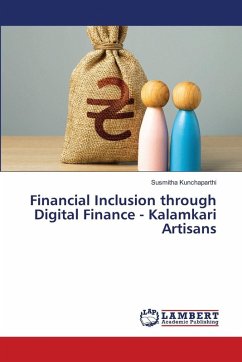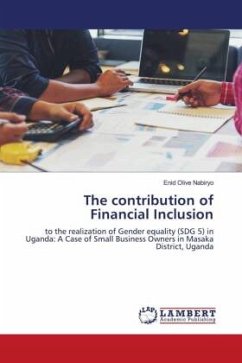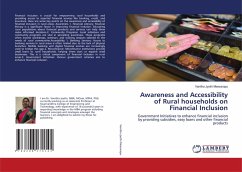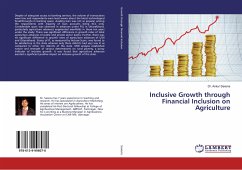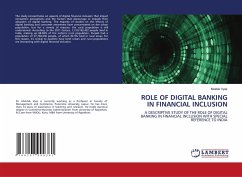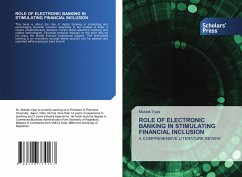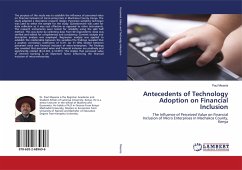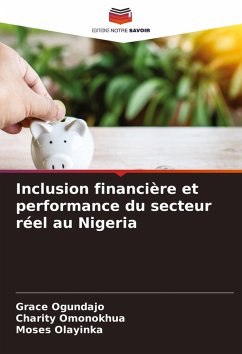
Financial Inclusion and the Performance of Real Sector in Nigeria
Versandkostenfrei!
Versandfertig in 6-10 Tagen
40,99 €
inkl. MwSt.

PAYBACK Punkte
20 °P sammeln!
This study examines the relationship between financial inclusion and the performance of Nigeria's real sector, encompassing agriculture, industry, and services, using 33 years of data (1990-2022) from the Central Bank of Nigeria. Financial inclusion, defined as access to essential financial services, is measured through indicators like broad money supply, credit to the private sector, lending rate, and the number of bank branches. Using the Fully Modified Ordinary Least Square (FMOLS) approach, the study finds that broad money supply and credit to the private sector significantly improve produ...
This study examines the relationship between financial inclusion and the performance of Nigeria's real sector, encompassing agriculture, industry, and services, using 33 years of data (1990-2022) from the Central Bank of Nigeria. Financial inclusion, defined as access to essential financial services, is measured through indicators like broad money supply, credit to the private sector, lending rate, and the number of bank branches. Using the Fully Modified Ordinary Least Square (FMOLS) approach, the study finds that broad money supply and credit to the private sector significantly improve productivity across all sectors, while higher lending rates and more bank branches negatively affect performance, especially in agriculture and industry. The research highlights the crucial role of financial inclusion in enhancing the real sector's productivity and recommends policies to lower credit costs and promote financial deepening, particularly for small and medium enterprises, to drive Nigeria's economic growth.






